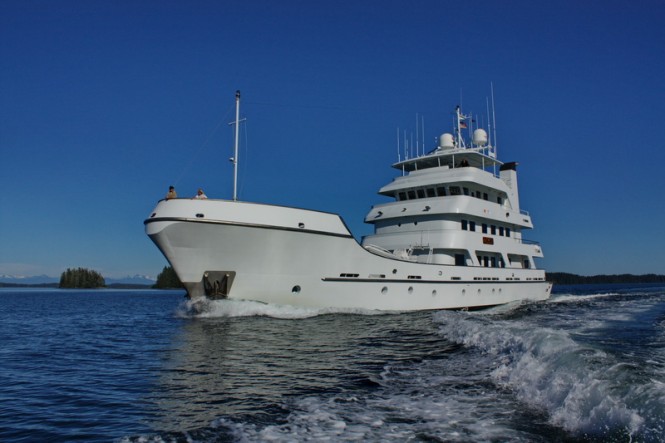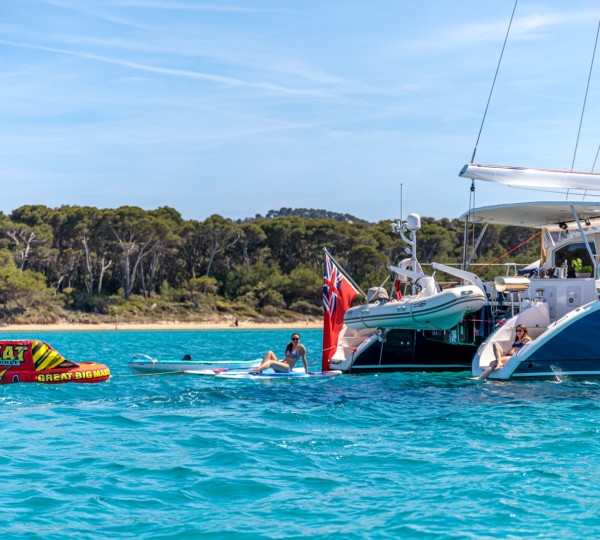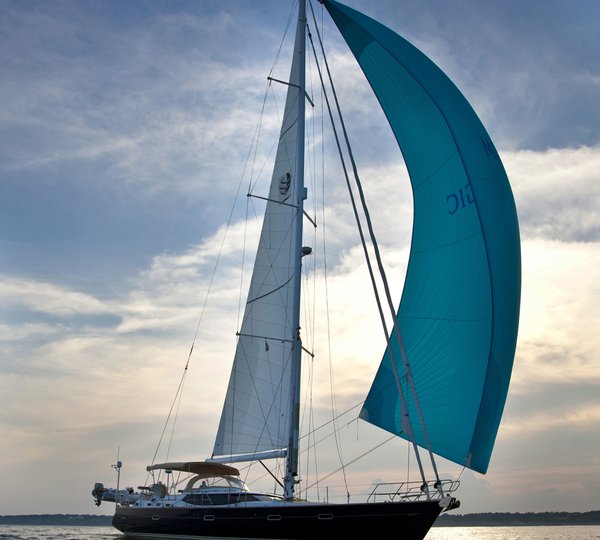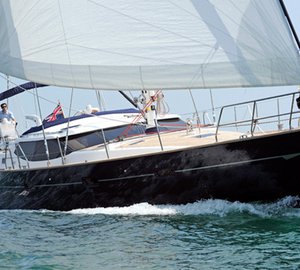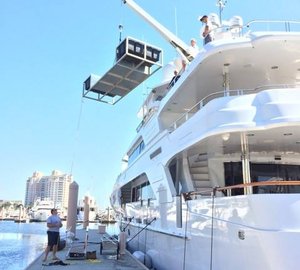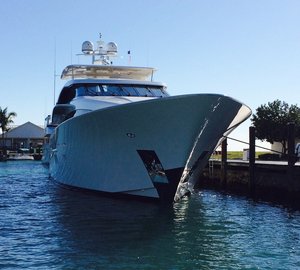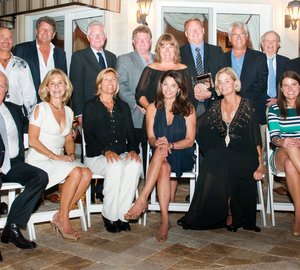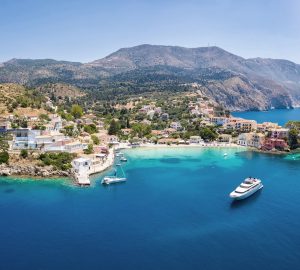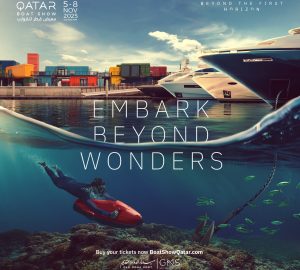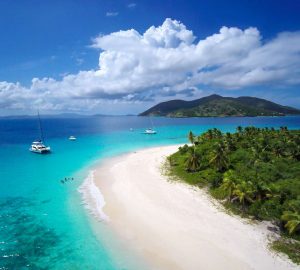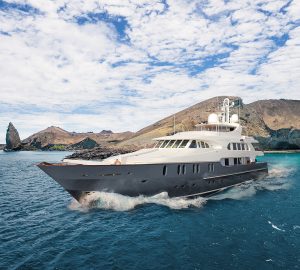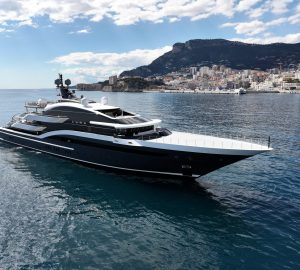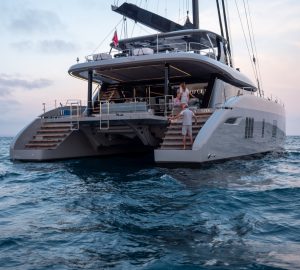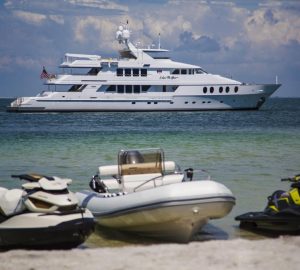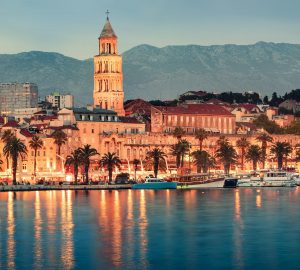January 28, 2014, saw the 43-metre luxury motor yacht Copasetic make course for the island of Bimini, a lovely Bahamas yacht charter destination, as part of the International SeaKeepers DISCOVERY Yacht Fleet. Superyacht Copasetic hosted a Florida Biodiversity Institute (FBI) cutting-edge mobile genome sequencing laboratory, which was placed on her bow.
Over the course of one week, top scientists from the University of Florida (UF) successfully sequenced two genomes per day, proving that modern technology and instrumentation traditionally found in top biomedical centers can function accurately in the field.
Under the direction of Dr. Leonid Moroz, the world’s foremost expert in neuroscience and genome sequencing, a team of scientists from UF collected over 1,000 samples of marine life for analysis in the mobile laboratory.
The expedition’s principal goal was to assess the functionality of equipment highly sensitive to variable parameters typically associated with fieldwork such as vibrations, humidity and temperature while at sea. An overwhelming success, the Moroz team sequenced a total of 15 genomes in Bimini and extracted the DNA and RNA of an additional 200 samples for further analysis at the Whitney Laboratory of Marine Bioscience.
Furthermore, the expedition proved the feasibility of real-time genome scale sequencing via the utilization of satellite communications and access to the UF’s supercomputer, the HiPerGator. This coupling of technologies allowed for the overnight analysis of the 15 sequenced genomes enabling researchers to instantly see results, a feat that typically requires months.
Overall, the mission on expedition yacht Copasetic provided groundbreaking proof of concept that a mobile genome sequencing laboratory is not only functional, it is invaluable for accurate marine biodiversity investigations. Tissue samples degrade exponentially within hours of collection, compromising their analysis. The FBI mobile laboratory enabled the preservation and analysis of impeccable samples that could never survive transportation to a land-based institution.
The many accomplishments were made possible through a synergy of private, public and not-for-profit organizations. Collaborations between UF, the International SeaKeepers Society, FBI, Ocean Research Corporation and Life Technologies transformed this innovative endeavor from a proposal to a pioneering success.
SeaKeepers’ vital partnership with FBI facilitated the involvement of a team of scientists from the UF’s Whitney Laboratory of Marine Bioscience. Through their network of yacht owners and industry partners, SeaKeepers initiated talks with OCR to welcome luxury yacht Copasetic to the DISCOVERY Yachts Fleet.
FBI spearheaded the construction and installation of the laboratory at their headquarters in Islamorada, Florida, where chemical grade countertops, floors and cabinets transformed the container into a state-of-the-art laboratory. Life Technologies, recently acquired by Thermo Fisher Scientific, manufactured the first of its kind Ion Torrent Personal Genome Machine, which facilitated rapid and cost-effective sequencing.

